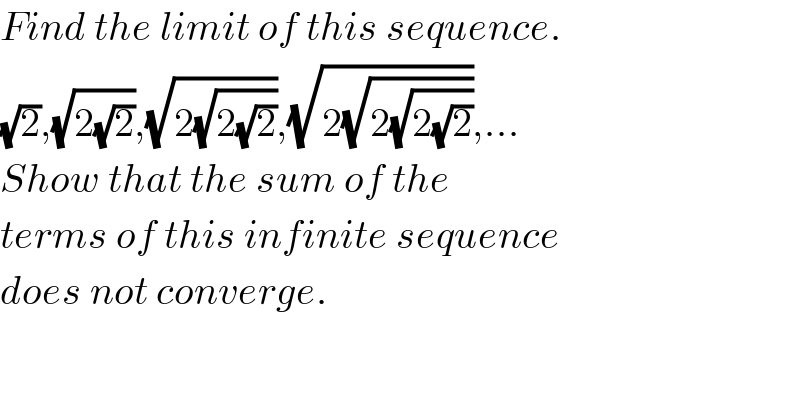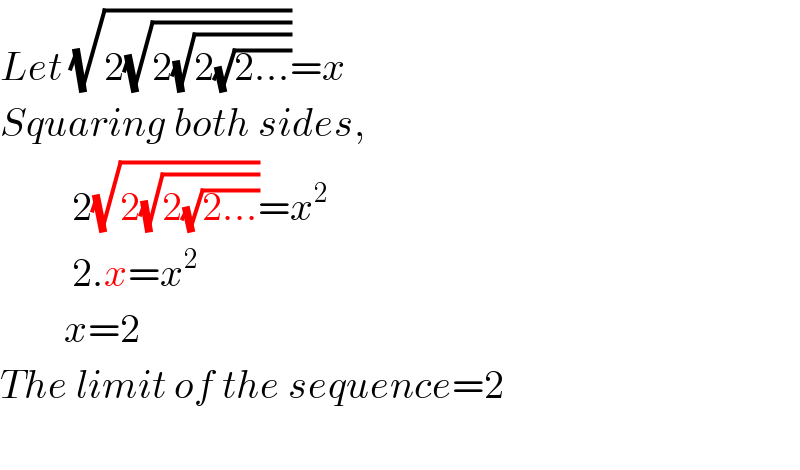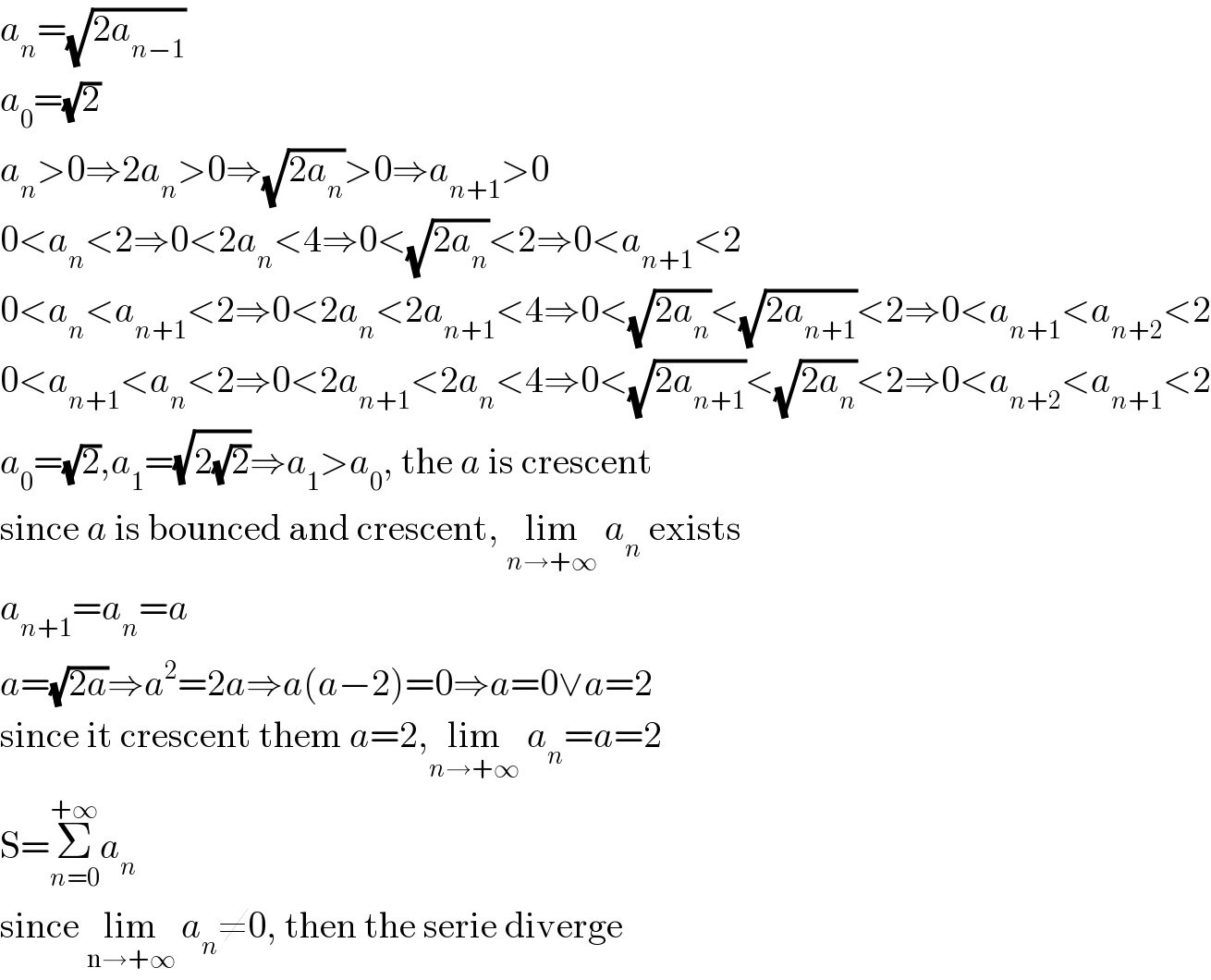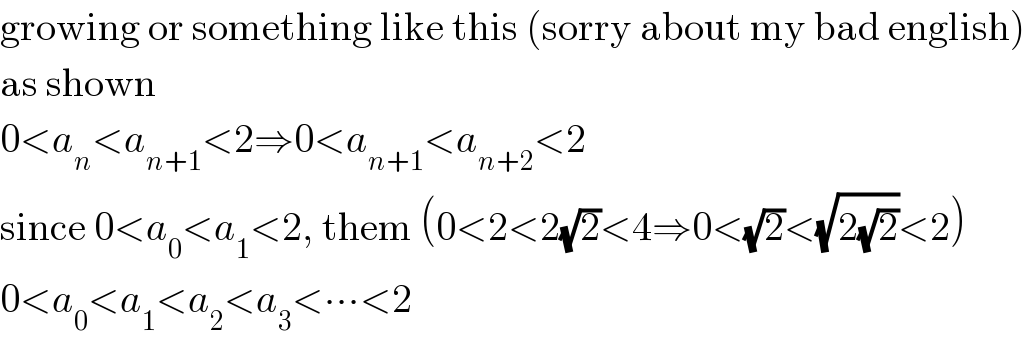
Question and Answers Forum
Question Number 1608 by 112358 last updated on 26/Aug/15

Commented by Rasheed Ahmad last updated on 26/Aug/15

Commented by 112358 last updated on 26/Aug/15

Answered by 123456 last updated on 26/Aug/15

Commented by Rasheed Ahmad last updated on 27/Aug/15

Commented by 123456 last updated on 27/Aug/15

Commented by 112358 last updated on 27/Aug/15
![He/she′s saying that the terms of the sequence are perpetually increasing to a limiting value of 2. Hence, the sequence is monotonic and upper bounded. i.e a_n ≤M for all n and a_(n+1) ≥a_n for all n. Generally, all sequences which are monotonic (only increasing or decreasing but not both) and bounded (upper or lower[a_n >M for any finite n]) are convergent. This is called the monotonic sequence theorem.](Q1617.png)
Commented by Rasheed Ahmad last updated on 27/Aug/15

